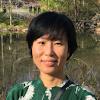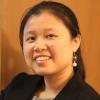Craft, Technology, and Material Culture in Early Modern Asia
Please set your timezone at https://www.chstm.org/user
Respectful Behavior Policy
Participants at Consortium activities will treat each other with respect and consideration to create a collegial, inclusive, and professional environment that is free from any form of discrimination, harassment, or retaliation.
Participants will avoid any inappropriate actions or statements based on individual characteristics such as age, race, religion, ethnicity, sexual orientation, gender identity, gender expression, marital status, nationality, political affiliation, ability status, educational background, or any other characteristic protected by law. Disruptive or harassing behavior of any kind will not be tolerated. Harassment includes but is not limited to inappropriate or intimidating behavior and language, unwelcome jokes or comments, unwanted touching or attention, offensive images, photography without permission, and stalking.
Participants may send reports or concerns about violations of this policy to conduct@chstm.org.
Upcoming Meetings
There are no currently scheduled upcoming events.
Past Meetings
-
April 8, 2022
For this meeting, we are going to read:
Li, Yuhang. Becoming Guanyin: Artistic Devotion of Buddhist Women in Late Imperial China. New York: Columbia University Press, 2020. Chapter 3.
And we will workshop Yijun Wang's work-in-progress, "From Exotic Seafood to Superfood: Consumption and Knowledge Production of Edible Bird's Nest in the Context of Cross-Cultural Trade, 1600-1900." Please email Yijun Wang at yw741@nyu.edu to request the paper. Please request the paper by April 7 (Thursday), 12:00 pm.
-
March 11, 2022
Russell, Andrew L., and Vinsel, Lee. “After Innovation, A Turn to Maintenance.” Technology and Culture 59, no. 1 (January 2018): 1–25.
Reich, Aaron K. “In the Shadow of the Spirit Image: The Production, Consecration, and Enshrinement of a Daoist Statue in Northern Taiwan.” Journal of Chinese Religions 49: 2, 265-324 (November 2021).
-
February 11, 2022
Christine Guth, Craft Culture in Early Modern Japan (Berkeley: University of California Press, 2021), chapters 4-5.
-
December 13, 2021
Yulia Frumer, Making Time: Astronomical Time Measurement in Tokugawa Japan (University of Chicago Press, 2018), chapters 2 & 3.
-
November 8, 2021
For this meeting, we will discuss:
Anne Gerritsen. The City of Blue and White: Chinese Porcelain and the Early Modern World. Cambridge, UK: Cambridge University Press, 2020, Chatper 9.
Hodder, Ian. Entangled: An Archaeology of the Relationships between Humans and Things. Malden, MA: Wiley-Blackwell, 2012, Chapter 5.
-
October 11, 2021
In this meeting, we are going to read:
Sennett, Richard. "Arousing Tools." The Craftsman. New Haven, UNITED STATES: Yale University Press, 2008.Barbieri-Low, Anthony. "Artisans in the Workshop." Artisans in Early Imperial China. First Edition edition. Seattle: University of Washington Press, 2007.
-
September 13, 2021
In this meeting, we are going to read two chapters to discuss the themes of "material" and "craft."
- Tim Ingold, “Materials against Materiality,” Archaeological Dialogues 14, no. 1 (June 2007): 1–16, https://doi.org/10.1017/S1380203807002127.
- Alexander Langlands, "Defining Craft," Cræft: An Inquiry Into the Origins and True Meaning of Traditional Crafts, First Edition (New York: W. W. Norton & Company, 2018).
- « first
- ‹ previous
- 1
- 2
- 3
Group Conveners
-

Kyoungjin Bae
Kyoungjin Bae is James P. Storer assistant professor of Asian history at Kenyon College. She is an historian of everyday technology and material culture in early modern China. She received a Ph.D. in Global and International History from Columbia University and completed two postdoctoral fellowships at the Lieberthal-Rogel Center for Chinese Studies at the University of Michigan and the Institute for Humanities and Social Sciences at the University of Hong Kong. Her book manuscript examines Cantonese cabinet making and carpenters’ knowledge during the eighteenth century.
-

Rachel Silberstein
Dr Rachel Silberstein is an independent scholar affiliated with the University of Washington specializing in Chinese dress and textile history. She earned a DPhil in Oriental Studies from the University of Oxford in 2015. Her monograph, A Fashionable Century: Textile Artistry and Commerce in the Late Qing (University of Washington Press, 2020) – a study of fashion and textile handicrafts in early modern China – won the Costume Society of America’s Millia Davenport Publication Award 2021 and an honorable mention from the 2023 Bei Shan Tang Monograph Prize. Rachel has published widely on Qing fashion in the journals West 86th, Fashion Theory, Costume, and Late Imperial China. Other publications include “Fashion in Ming and Qing China,” in The Cambridge Global History of Fashion (University of Cambridge Press, 2023), and “Threads of Commerce and Consumption: the Qing Trade in Cotton, Silk, and Wool Textiles,” in The Oxford Handbook of the China Trade (Oxford University Press, 2025, forthcoming). Previously Visiting Assistant Professor at the University of Puget Sound and Rhode Island School of Design, her research has been supported by the Pasold Research Fund, the Luce Foundation/ACLS, and the Institute of Advanced Studies.
www.rachelsilbersteindphil.com
-

Yijun Wang
Yijun Wang is Assistant Professor of History at New York University as well as a 2020-2021 ACLS-Luce China Early Career fellow. She is a historian of material culture, history of technology and gender in early modern China. Yijun is interested in the connections between knowledge, technology, power, and capitalism. Her book manuscript examines the transmissions of tin mining technology and changes in statecraft in China from 1700 to the 1850s.
-

Yulian Wu
Yulian Wu is Assistant Professor of the History Department at Michigan State University. She specializes in material culture, gender relations, and Manchu studies in early modern China. She published her first book, Luxurious Networks: Salt Merchants, Status, and Statecraft in Eighteenth-Century China in 2017 (Stanford University Press). Her current project titled “Crafting Jade: The Construction of Objects and Empire in Eighteenth-Century China,” explores jade production and consumption in the High Qing period.